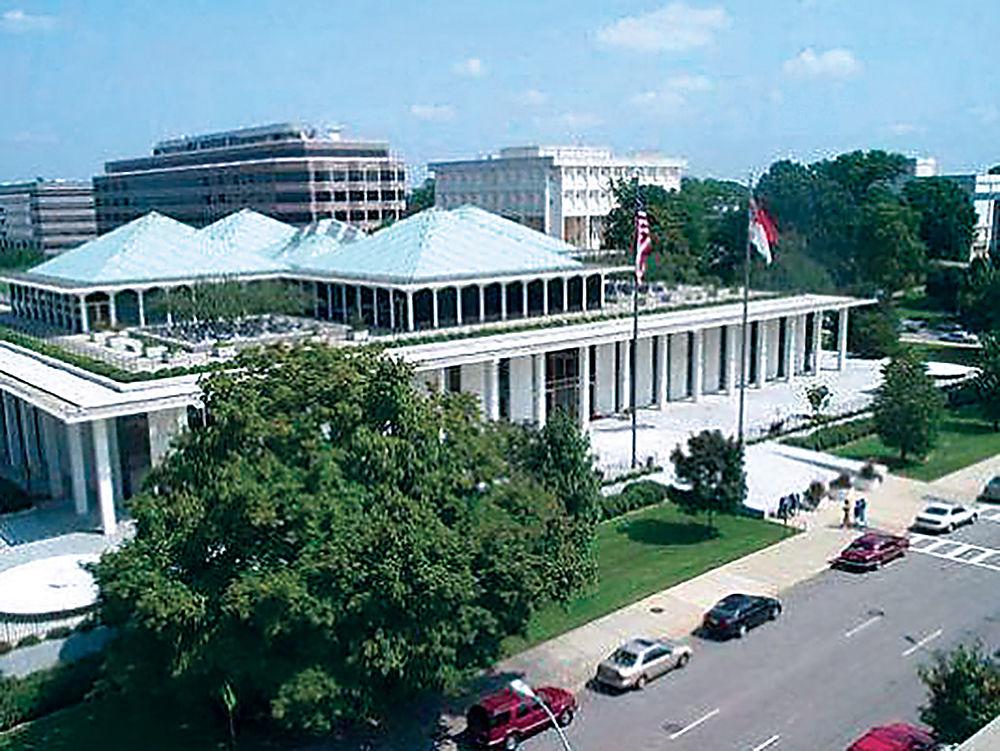 The North Carolina General Assembly is considering a bill that would create rules for how UNC System schools enforce cases of students interfering with others’ right to free speech." />
The North Carolina General Assembly is considering a bill that would create rules for how UNC System schools enforce cases of students interfering with others’ right to free speech." />
Courtesy of Wikipedia Commons
The North Carolina General Assembly is considering a bill that would create rules for how UNC System schools enforce cases of students interfering with others’ right to free speech.
The North Carolina General Assembly approved a $23 billion state budget on Wednesday, for the 2017-18 fiscal year. The budget, backed by North Carolina’s GOP legislative majority, was met with a veto from Gov. Roy Cooper on Tuesday, which was immediately overridden by the Senate, and later, the General Assembly.
Early Thursday morning, Chancellor Randy Woodson released a Chancellor’s Letter outlining the newly approved plan.
“I am happy to share that this budget does not include a management flexibility reduction in Fiscal Year 2017-18 and funds several university priorities which enable us to advance our strategic objectives,” Woodson said.
According to Woodson, approximately one-third of NC State University’s overall budget relies on funding from the state.
The new budget includes an across-the-board salary increase of $1000 for all full-time staff members employed under the State Human Resources Act. There will also be a funding pool equivalent to $1000 for full-time employees exempt from Human Resources Act, which includes some faculty. The funding pool will be distributed based on guidance from the UNC System General Administration.
Full-time employees will also be provided with three annual leave days under the new budget.
The budget also offers funding for “university priorities.” According to Woodson’s statement, there will be, “Full funding for enrollment growth [and] building reserves,” as well as $50.5 million allotted for “repairs and renovations” around campus. The budget also provides $1 million in nonrecurring funds will be put toward faculty recruitment and retention.
Woodson outlined general provisions of the budget that affect the UNC System as a whole and, as an extension, NC State, and stated that more specific directives and allotment details would come from the Board of Governors soon.
UNC System President Margaret Spellings released a statement on June 20 about the then-final version of the budget. “[The budget] signals greater investment in and strong support for the University and furthers many of the goals of the UNC Strategic Plan—including accessibility, affordability and efficiency, and student success,” Spellings said in the statement.
Spellings’ early approval of the budget’s attention to higher education solidified support for the plan from the GOP — a statement of support that was at odds with Cooper’s view that the budget did not go far enough in improving education funding.
In a statement about his decision to veto, Cooper said that the budget “shortchanges the needs of our growing state, and has the wrong priorities.” He further stated that he would sign the budget after the North Carolina General Assembly made some “simple, but important changes” to the proposal.
Among his suggested changes, Cooper emphasized the need to prioritize public education funding across the state. Cooper stated that his proposed budget includes a stipend for classroom supplies, better access to broadband internet for public schools and teacher pay raises. He also asked the General Assembly to reduce the amount of funding given to private school vouchers.
The North Carolina Senate voted to override Governor Cooper’s veto on Tuesday, 34-14. Of the four Democrats who initially voted in favor of the GOP budget, three voted this time to back their governor. Sen. Joel Ford (D-Mecklenburg), the fourth Democrat, was absent and did not vote.
The General Assembly’s override of Cooper’s veto and suggested changes came Wednesday morning, approximately 24 hours after Governor Cooper’s decision and the Senate override.
According to WRAL, the House of Representatives’ 74 Republicans were joined by two Democrats, Rep. Bill Brisson (D-Bladen) and Rep. Ken Goodman (D-Richmond), resulting in a 76-43 majority that passed the budget.
Both Spellings and Woodson praise the General Assembly for keeping higher education at the forefront of the priorities in this year’s budget.
“We appreciate the General Assembly’s recognition of our important work fostering research and innovation for real-world impact,” Woodson said, in concluding his statement. “Their support demonstrates confidence in our ability to tackle society’s grand challenges.”